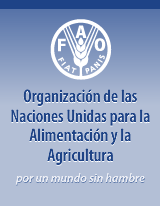Global Fire Management HubBackground Following demands from international actors, a Global Fire Management Platform was first proposed by FAO and the United Nations Environment Programme (UNEP) at the XV World Forestry Congress and welcomed by FAO Members during the 26th Session of the Committee on Forestry in 2022. The Global Fire Management Hub – or ‘Fire Hub’ - was officially launched at the 8th International Wildland Fire Conference in May 2023. What does the Fire Hub do?
Over the past years, FAO has led the development of an Integrated Fire Management (IFM) approach that helps to ensure that all fire activities are integrated into national policies and plans, are cross-sectoral, and involve diverse stakeholders.
The Fire Hub will build on this approach and support the application of principles laid down by guidelines and best practices developed by the community of scientists and practitioners over the last decades, including the principles of the Fire Management Voluntary Guidelines (FAO, 2006) and the Landscape Fire Governance Framework (presented at the 8th International Wildland Fire Conference in 2023). Thanks to the generous support provided by Germany, FAO is convening a series of technical workshops with key partners over the course of 2023 and 2024 to guide the integration of the 25-year-old Global Fire Monitoring Center (GMFC) into the Fire Hub and discuss its operationalization. Activities
Outputs of the Fire Hub’s work will include the promotion of holistic approaches nationally and subnationally, enhanced global collaboration and stakeholder understanding, inclusive participation of indigenous, rural communities and other underrepresented groups, and improved coordination and communication at international, regional, and national levels to elevate the profile of IFM. | Upcoming events
Past events
Related linksContactGeneral enquiries: [email protected] Lara Steil, Fire Management Officer: [email protected] Amy Duchelle, Senior Forestry Officer: [email protected] |
última actualización: miércoles 19 de junio de 2024

